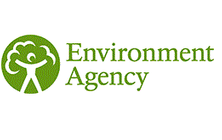
A Hampshire council has introduced an innovative credit scheme, designed to solve the ‘nitrates crisis’ which has severely restricted the development of new housing in the south of the county this summer.
The problem is that housing development causes the run-off of waste water which is rich in nitrogen from its application as a farm fertiliser. This, in turn, increases algae bloom which can severely damage the ecology of wildlife habitats, particularly their bird populations. The issue has intensified over the last two summers, following European Court rulings in 2018 that strengthened the protection of sites regarded as sensitive under EU law.
Councils around the Solent have been working with Natural England, Southern Water and the Environment Agency in an attempt to solve the problem. In June 11 local authorities including Portsmouth, Fareham, Gosport, Havant, East Hampshire and Test Valley, put housing developments on hold, following "non-binding’ advice from Natural England that developments bordering the Solent’s EU-protected sites must be nitrate-neutral.
The Partnership for South Hampshire (Push), a body supporting economic growth in the region said that the delivery of thousands of new homes was "in limbo". Councils called on the Ministry of Housing, Communities and Local Government (HMCLG) to exempt them from meeting housing delivery tests because of the nitrogen impacts of large developments at affected sites.
In September, councillors in Fareham approved a series of measures including the use of S106 contributions to help create wetlands to remove nitrogen, reduce fertiliser use on farmland and improve the wastewater treatment works at Peel Common.
Now Portsmouth City Council has developed a strategy whose overall aim is to reduce the wastewater sent to the city’s Budds Farm waste water treatment works in Havant. The council has achieved head room for new developments by retrofitting water saving measures in its own stock. Developers will be required to include water-saving and elements like sustainable urban drainage in new schemes but, in addition, they can purchase ‘mitigation credits’ from the council, allowing them to build.
The strategy notes: "Officers will continue discussions with developers to identify what steps they intend to take independently to achieve nitrate neutrality within their proposals, including opportunities to work with third party landowner."
Officers have calculated that the strategy could create enough credits for 518 homes a year. Following the measure, a 108-home development has been approved on a dairy site.
